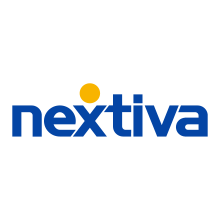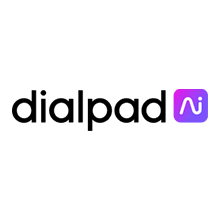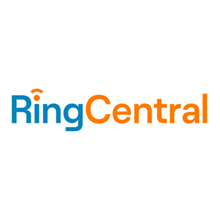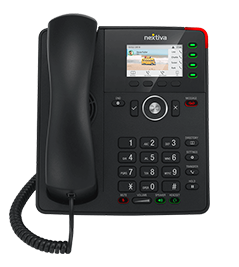Compare Our Top VOIP Phone Services
Updated August 2023: We researched, analyzed, and reviewed the best VoIP phone services to help you choose the right solution for your business.
TOP PICK
Highly Rated
How to Choose the Best VoIP Phone Service
Choosing a VoIP phone service can feel like a stressful decision. With dozens of features, confusing jargon, and multiple plans to choose from, there are a lot of factors to think about.
Below, we discuss the most important considerations to think about when making your final decision.
Price
You’ve likely heard the saying “you get what you pay for.” This rings true when selecting a VoIP phone system. Pricing can seem straightforward at first glance, but there are often hidden fees and complex pricing structures you need to watch out for. As you evaluate options, it’s important to keep the total cost of ownership top of mind rather than just the initial purchase price and monthly rate.
While you don’t want to overpay, the cheapest system may end up costing more in the long run.
Key factors that impact pricing include the number of users you need to support now and your expected growth, features and functionality, service and support, and ease of scaling. You may also want to consider different pricing structures, including pay-as-you-go pricing if you have lightweight needs and flat monthly fees with unlimited calling to handle high demand while keeping your costs stable.
As you compare providers, we recommend looking beyond the basics to see how pricing changes with additional services, users, usage, or locations.
Why? Because you need a VoIP service that can gracefully expand as your business grows so you aren’t forced into frequent costly upgrades. Look for simple, incremental pricing to seamlessly add services or users month-to-month or year-to-year. Likewise, you want to avoid long, complex contracts that lock you into a particular configuration for years.
Flexible agreements that allow you to adjust services to meet dynamic needs are best.
While cost is important, the long-term value your VoIP system delivers matters more. Leverage free consultations with providers to discuss your current situation, future goals, and how prospective systems can support your success over time. With the right questions and a clear picture of total costs, you’ll be able to balance short and long-term value per dollar.
Ease of Use
Without an intuitive, user-friendly VoIP service, even the most comprehensive system will go wasted as employees struggle and fail to fully utilize them. If your phone system isn’t easy for everyone to use, it’s failed at its most basic function.
First and foremost, you want a VoIP solution that is easy to set up and program on day one.
Choosing a provider that offers simple plug-and-play hardware and an intuitive web-based control panel for system programming will make everyone’s lives easier.
Verifying initial setup before purchasing isn’t always easy, but a great place to start is your own IT team if you have one. Be sure to get their buy-in from the very start as they’ll be able to provide valuable perspective on ease of management and integration with your existing infrastructure.
For businesses without dedicated technical teams or with remote workers, ease of use is even more critical.
Without an in-house helpdesk, employees won’t have anywhere to turn when they run into issues setting up their new hardware. So, the system itself must be as user-friendly as possible.
It helps to look for features like interactive voice prompts, soft keys, and intuitive menus that guide users through the system. You can also scout out online training resources like videos and user communities that provide extra support during your selection process.
However, the initial learning curve shouldn’t be your only consideration. The VoIP system should be easy for admins and employees to use on a daily basis. Clunky, complex interfaces lead to frustration, lost productivity, and even lost employees.
No matter how you work, every function should match how you do rather than the other way around. We recommend leveraging free trials, training videos and documentation, and previous customer experiences to ensure the system’s right for you before purchasing anything.
To us, easy to use also means easy to customize. We recommend choosing a system that allows admins to easily set up ring groups, call flows, time-of-day routing, and more using visual drag-and-drop tools.
It should also be easy to add and remove users without assistance.
Customer Support
Having the right VoIP phone service is crucial for any company, but equally as important is the customer support that comes with it. Without robust support options, even the most comprehensive communication tools can leave you feeling frustrated.
The gold standard is support that’s there whenever you need it. Things go wrong outside of normal business hours, on weekends, and during holidays.
As such, you want confidence that a real person is there for you no matter when a problem strikes. Around-the-clock phone, live chat, and remote troubleshooting access are always important considerations. You don’t necessarily need anytime access via every channel, but it’s nice to know you can reach out however you prefer.
For large systems and enterprises, a dedicated account manager can help ensure your questions get answered and you deserve the support you need. Plus, this go-to support expert gets to know you, your company, your system setup, and your typical issues. That level of personalized insight enables them to deliver highly personalized service. When you have questions or problems, you can get directly in touch with someone knowledgeable about your system.
We also recommend looking for providers that offer onboarding support. The transition to a new VoIP phone service can be daunting, with training and setup headaches if you don’t have help. Quality providers assign an implementation team who helps you handle all the technical details.
They can also train you and your employees on using all the features and functionality.
With that said, many providers charge extra for setup assistance, training, priority response, on-site support, customization, and more. While paying extra for additional support isn’t necessarily a drawback, it’s crucial to understand what you get and don’t get for the cost you’re already paying.
Overall, make sure you understand response times, service level agreements, and overall scope within the plan you choose. You should also always confirm charges for add-ons you may need.
Included Communication Tools
When selecting a VoIP phone service for your company, you have an opportunity to consolidate other communication tools you may already be using and fill in any collaboration gaps you might have.
Many modern VoIP systems come packed with a suite of collaboration tools you can use to boost internal communication, improve customer experiences, save money, and help you operate at peak efficiency with all your systems connected together. In reality, your new VoIP phone system will likely be much more than a simple telephone line.
Some of the most common communication tools that can be included are team chat and messaging, standard SMS, marketing texts, video conferencing, online faxing, and file sharing plus storage.
When evaluating these extra tools, consider your workforce, customers, and how they communicate.
If your team is distributed across multiple locations or relies heavily on closing sales via video, robust video conferencing is essential. If your company relies heavily on faxing for legal documents or other needs, online fax is a must-have. Alternatively, a young team that lives in chat apps may be best suited with integrated messaging features.
Choosing the right mix of communication tools can:
- Keep remote workers connected and engaged
- Facilitate better internal communication company-wide
- Provide customers choice in how they interact with your business
- Reduce reliance on third-party apps and services to get work done
- Future-proof communication capabilities as your company grows
- Simplified software administration and potentially lower costs
The most flexible and feature-packed VoIP services give you the option of combining all the channels you need into a single intuitive experience.
Call Management Features
The right features can connect your team, elevate customer experiences, and optimize day-to-day operations. The wrong ones result in dropped calls, confused customers, and administrative headaches.
When evaluating your needs against potential solutions, we recommend considering features that impact your customers and employees, alike, including:
- IVR (interactive voice response)
- Customizable call routing rules
- Skills-based routing options
- Holiday, weekend, and after business routing
- Intelligent call distribution
- Ring groups
- Call queue and prioritization options
- Easy call forwarding and transferring
- Employee availability settings
- Extensions and directories
- Recording and transcriptions
- Barge, monitor and whisper
With so many options to weigh, it’s essential to hone in on the call management features that matter most for your employees. It’s best to start by analyzing your call volume, bottlenecks, pain points, and biggest opportunities for optimization.
From there, you can start to think about features beyond the necessities. A strategic approach to this ensures you choose a VoIP solution that delivers value without unnecessary complexity.
Hardware Options
Different providers offer different types of hardware—they sell and lease specific brands, are compatible with select devices, can provide adaptors for different legacy hardware, and have unique requirements.
Many businesses use a combination of different types of hardware to build out a complete VoIP system. So, it’s crucial to make sure that the provider you choose works with the types of devices you have and want to use. From adaptors to conference room setups, desk phones, and headsets, a wider range of compatible hardware makes it less of a question.
The good news is that today’s VoIP phone services are incredibly flexible, giving you choices to find the perfect setup to meet your needs while balancing your budget.
Now that you understand why it’s important to look into hardware options, let’s talk about the different options you have.
Hardware-Free Systems
For starters, many modern VoIP phone systems live entirely in the cloud, letting you ditch the expensive, bulky hardware of traditional solutions. With most hardware-free systems, you simply need an internet connection and mobile phone or desktop to start making calls.
This hardware-free approach comes with many advantages, including:
- Lower upfront costs
- Easy up and down scalability
- Built-in resiliency
- Seamless mobility
- Automatic updates
However, it also means you have to be connected to the internet and around your phone or computer to make calls. With that said, it’s a great VoIP option for remote teams and anyone else who doesn’t need a physical phone.
Using Existing Hardware
If you want to stick with a more traditional setup while gaining modern VoIP system features, many providers let you use your existing desk phones, conference room phones, and fax machines.
You simply need their adapters or gateways to connect your legacy equipment to your new system. This approach prevents waste and protects your investment in existing hardware. Before going this route, make sure your devices are compatible and that you don’t need any additional infrastructure or hardware.
We also recommend asking if your existing devices support all the VoIP features of your new plan. Older systems weren’t built for modern technology, so you may end up not being able to use certain features.
Renting or Buying Endpoints
Alternatively, you can buy or rent new hardware if you want an upgrade or don’t have existing devices. Most providers offer a range of VoIP desk phones, conference room setups, and other endpoints so you can put together a custom solution that covers everyone and every room.
Purchasing through your provider ensures seamless integration and full access to every feature you’re paying for. Plus, most devices are plug-and-play so they’re ready to go out of the box.
When choosing new hardware, be sure to consider:
- Durability, quality, mobility, and the user experience
- Optimized solutions for conference and huddle spaces
- Wireless headsets for hands-free communication
- Noise cancellation if working in an open office
- Specialized adapters for other equipment you have
- How your devices connect to the internet
When it comes to acquiring the hardware you want, you have two options—leasing or buying. Leasing phone equipment comes with lower upfront costs and shifts the risk of obsolescence to the provider.
However, you’ll pay more in the long run without ownership at the end.
Buying may require a more significant upfront cost, but provides full ownership and lower monthly fees.
The best option for you depends on your business needs, cash flow, and growth plans. Rapidly scaling startups may benefit more from the flexibility and low costs of leasing equipment, while established enterprises with steady usage may favor buying devices outright.
Integrations
Integrations are the veins through which data flows across your business, connecting every team, employee, and department into a unified ecosystem.
Since your new VoIP phone service will be a new part of your existing stack, how easily your phones sync with everything else is a crucial, yet often overlooked, consideration. With it nicely integrated, you gain immediate insights, improved productivity, better customer experiences, and smoother workflows.
Say you had an amazing sales call that warrants a follow-up. Without a link between your VoIP system and CRM, your tools work in isolation and your team loses sight of the bigger picture.
However, an integrated system tell a different story—details from calls, meetings, and emails automatically populate in your CRM and other critical programs, too.
Suddenly, you don’t just see a snapshot at a single point in time, but the entire film roll.
Integrations come in many forms. CRM, marketing automation, service tickets, live chat, payment processing, email, ecommerce, and analytics represent common examples. But the capabilities extend much further. Depending on the VoIP system and available APIs, you can customize workflows to enable all kinds of creative connections.
When evaluating VoIP phone services, always scrutinize integrations. It takes just one missing link to complicate your entire setup. A system may boast dozens of integrations. But quality trumps quantity, so ensure the ones you need are available, but also ask to see them in action.
Before choosing a provider, be sure to ask the following questions:
- Do the integrations available cover the specific tools you use?
- How deep do the integrations extend and what can or can’t you do with them?
- Do integrations allow real-time syncing so data flows both ways?
- Are there guides, resources, and support for getting set up?
- Can you build customized integrations through provided APIs and developer resources?
By selecting a VoIP service with the right integrations, you gain insights to drive smarter decisions. Data connects departments, systems speak together, and your entire business wins.
Is VoIP Cheaper than a Landline?
Yes. In most cases, VoIP services are significantly cheaper than a traditional landline. With VoIP, your calls are transmitted over the internet rather than through dedicated phone lines. You no longer need expensive hardware and phone companies no longer have to maintain extensive infrastructure. VoIP providers pass these savings on to customers in the form of lower monthly bills.
VoIP services are especially cost-effective for businesses since you only pay for the features you truly need.
Is VoIP Worth it for Small Businesses?
VoIP is absolutely worth it for small businesses. In fact, the benefits of lower costs, enhanced features, and increased flexibility make VoIP services especially advantageous for smaller operations.
For starters, the cost savings versus traditional phone services allow small businesses to put money back into growing the company. But VoIP isn’t just about saving money. It also provides productivity enhancing features like auto-attendants, voicemail to email, call recording, conferencing, mobility options, and advanced call management. Modern VoIP systems enable smaller teams to access features that used to be reserved for large enterprises.
How Much Does a VoIP Phone System Cost for a Small Business?
The cost of a VoIP phone system for a small business can vary quite a bit. At a minimum, you can expect to spend around $20-$50 per phone line per month plus the cost of required infrastructure and hardware if needed. To get the best price, we recommend determining your must-have features, expected call volume, and number of users. From there, you can shop around and see which VoIP provider offers the best rates for your needs.
How Do I Choose a VoIP Phone Service?
We recommend starting with a list of everything you absolutely need. This will help you narrow down a massive list of providers to the few that can actually provide everything on your list. From there, pay close attention to pricing, ease of use, customer support, included communication tools (texting, video, and faxing, for example), call management features, hardware options, and integrations. You can use these factors to figure out which VoIP provider is the right one for you.
In most cases, we recommend Nextiva because of its fantastic customer support, excellent ease of use, high value per dollar, scalability, and robust feature set.
What Is the Best VoIP Phone Service?
There’s no definitive “best” VoIP phone service for every company. The right fit depends on your size, requirements, and budget. However, we highly recommend Nextiva for most businesses—not only do you get an amazing phone service and robust set of features, but you also get high-quality support and an incredibly simple admin interface for managing your system.
Can a Cell Phone Be Used as a Business Phone?
Yes. In fact, many freelancers, startups, and solopreneurs use their existing phone and phone number.
But just because you can doesn’t mean it’s the best way to go. Giving out your personal phone number can get overwhelming very quickly. Plus, your existing plan just can’t support the more advanced call management features you’ll need as your business grows. The good news is there’s softphone functionality with every VoIP provider on our list. All you need to do is install the mobile app, pick the cheapest plan, get a business number, and you’re good to go. With this approach, you get all the call management and communication tools you need at a low cost for one user with plenty of room to grow. And the best part? No desk phone or additional hardware required.
How Do I Get a Phone Line for My Business?
Getting a phone line for your business is incredibly easy. With digital VoIP systems, you can set up a business phone system with virtual numbers without installing physical desk phones. Many providers let you port existing numbers or choose new local toll-free numbers at no cost. Top providers like Nextiva, make the process quick and hassle-free.
Simply pick your plan, choose your numbers, and provision phones or app logins for each user.











